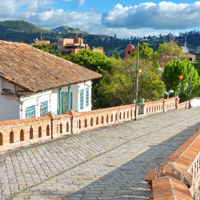

Ecuador Visas with Attorney Sara Chaca is the No. 1 Visa Law Firm for Your Move!
Learn More
 Ecuador Visas - Law office of Attorney Sara Chaca
Ecuador Visas - Law office of Attorney Sara ChacaEcuador Visas with Attorney Sara Chaca is the No. 1 Visa Law Firm for Your Move!
Learn More
Copyright 1997-2025 Burlingame Interactive, Inc.